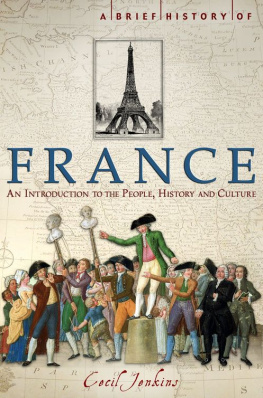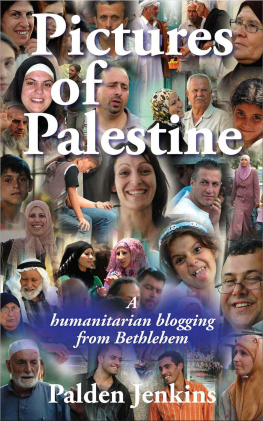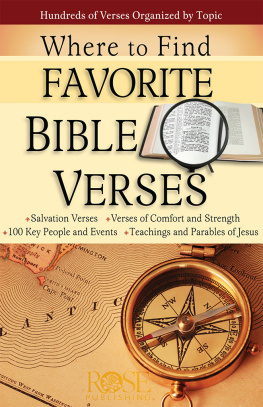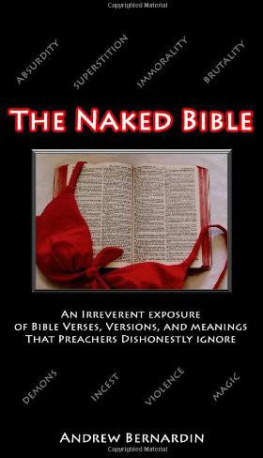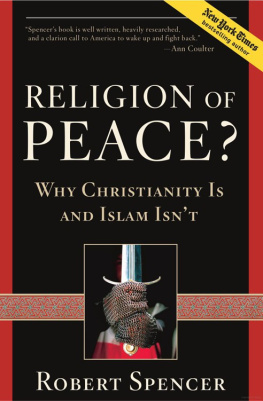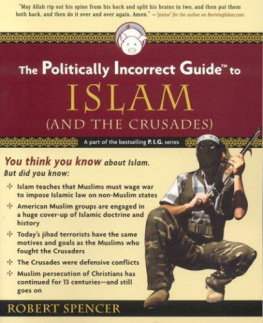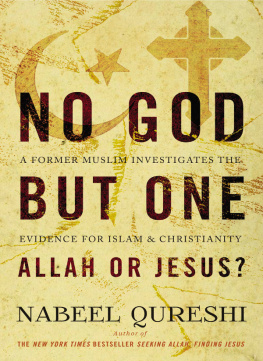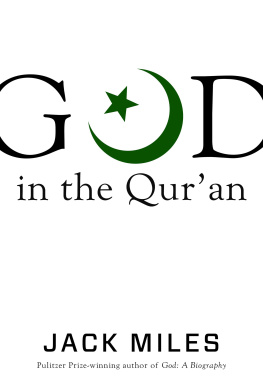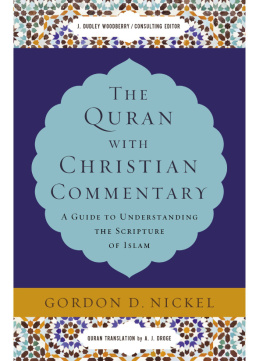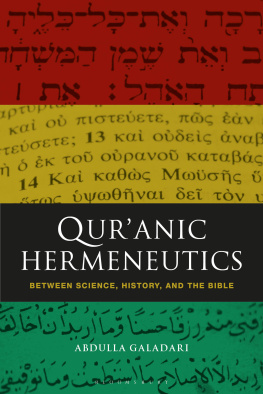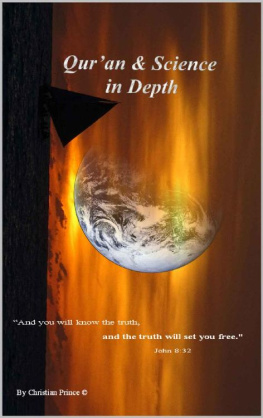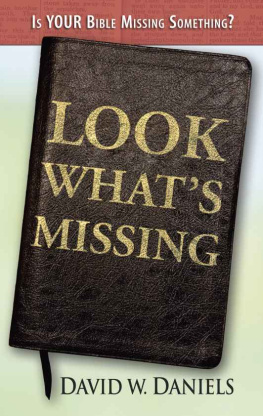Jenkins - Laying down the sword: why we cant ignore the bibles violent verses
Here you can read online Jenkins - Laying down the sword: why we cant ignore the bibles violent verses full text of the book (entire story) in english for free. Download pdf and epub, get meaning, cover and reviews about this ebook. year: 2014, publisher: HarperCollins US;HarperOne, genre: Religion. Description of the work, (preface) as well as reviews are available. Best literature library LitArk.com created for fans of good reading and offers a wide selection of genres:
Romance novel
Science fiction
Adventure
Detective
Science
History
Home and family
Prose
Art
Politics
Computer
Non-fiction
Religion
Business
Children
Humor
Choose a favorite category and find really read worthwhile books. Enjoy immersion in the world of imagination, feel the emotions of the characters or learn something new for yourself, make an fascinating discovery.
Laying down the sword: why we cant ignore the bibles violent verses: summary, description and annotation
We offer to read an annotation, description, summary or preface (depends on what the author of the book "Laying down the sword: why we cant ignore the bibles violent verses" wrote himself). If you haven't found the necessary information about the book — write in the comments, we will try to find it.
Laying down the sword: why we cant ignore the bibles violent verses — read online for free the complete book (whole text) full work
Below is the text of the book, divided by pages. System saving the place of the last page read, allows you to conveniently read the book "Laying down the sword: why we cant ignore the bibles violent verses" online for free, without having to search again every time where you left off. Put a bookmark, and you can go to the page where you finished reading at any time.
Font size:
Interval:
Bookmark:
L AYING D OWN
THE
S WORD
Why We Cant Ignore
the Bibles Violent Verses
PHILIP JENKINS

Contents
M OST OF THIS BOOK concerns the scriptures that Jews know as the Tanakh, or simply as the Bible. Christians acknowledge these books as only a portion of the whole Bible, under the name the Old Testament, which is for many a controversial term because it implies that these scriptures are somehow obsolete or outmoded. Many writers prefer the neutral term Hebrew Bible, but this is itself problematic. If the Old Testament is the Hebrew Bible, then the New Testament presumably becomes the Greek Bible or Greek Testament, with no recognition that Christians accept both portions of the scripture as authoritative. I will sometimes use the term Old Testament, partly because so much of my own work concerns specifically Christian responses to the scripture. Whenever I use that phrase, however, the implied quote marks should be understood.
The Bible, and specifically the Old Testament, developed over a long period of time, with many authors and editors. Few scholars today believe, for instance, that Moses personally was the author of any or all parts of the books that bear the names Exodus and Deuteronomy. However, many of the writers I will discuss in these chapters knew no such caveats, so that when discussing Deuteronomy, they had to deal with the issue of how Moses himself could have said such things. Because my main interest in this book is how the texts are understood and remembered, I will on occasion write of a book such as Deuteronomy as if it really did represent what Moses wrote.
The Quran offers similar problems of authority and authenticity. For a faithful Muslim, the text was dictated directly by God, and the Prophet Muhammad played precisely no role in forming or issuing any of the actual words. For these reasons alone, it would be quite wrong to write a sentence beginning, As Muhammad said in the Quran... As I am not a Muslim, I do not believe in the precise divine inspiration of the text, and my remarks on that scripture will give Muhammad at least some credit for the message. The question of authorship becomes ever more complex in light of recent theories that trace the origins of parts of the Quran to earlier spiritual writings, both Christian and Jewish.
Christians traditionally date history from the birth of Christ and use the abbreviations BC (before Christ) and AD ( anno Domini ). I will here use the religiously neutral terms CE (Common Era) and BCE (before the Common Era).
Except where otherwise specified in the notes, Bible translations are given in the King James Version. On occasion I give preference to a modern translation where this yields significantly better results in terms of clarity, euphony or accuracy.
Introduction
Motes and Beams
In the practical use of our intellect, forgetting is as important as remembering.
W ILLIAM J AMES
W E HAVE A GOOD idea what was passing through the minds of the September 11 hijackers as they made their way to the airports. Their al-Qaeda handlers had instructed them to meditate on al-Anfal (the Spoils) and at-Tawba (Repentance), two lengthy suras, or chapters, from the Quran. The passages make for harrowing reading. God promises to cast terror into the hearts of those who are bent on denying the truth; strike, then, their necks! God instructs his Muslim followers to kill unbelievers, to capture them, to ambush them:
Then, when the sacred months have passed, slay the idolaters wherever ye find them, and take them captive, and besiege them, and prepare for them each ambush.
O Prophet! Strive against the disbelievers and the hypocrites! Be harsh with them. Their ultimate abode is hell.
The word used for striving or struggle in the final verse quoted above gives rise to the term jihad, and later advocates of jihad ground themselves in these passages.
The hijackers should not shrink from killing prisoners. As they were instructed, God told Muhammad that no prophet should have prisoners until he has soaked the land with blood. Everything contributes to advancing the holy goal, as described in al-Anfal : Strike terror into Gods enemies, and your enemies. Perhaps in their final moments, the hijackers took refuge in these words, in which God seemingly lauds acts of terror and massacre.
Other extremists have found inspiration in these passages. After U.S. Army Major Nidal Hasan went on a murder rampage at Ford Hood in Texas in 2009, authorities sought clues about his ideological development. They found that two years previously, Hasan had lectured his puzzled non-Muslim colleagues about the demands of the Quran, as he focused on one verse from at-Tawba: Fight against such of those who have been given the Scripture as believe not in Allah nor the Last Day, and forbid not that which Allah hath forbidden by His messenger, and follow not the religion of truth, until they pay the tribute readily, being brought low.
Parts of the Quran can shock. One verse warns, Those who make war against God and his apostle... shall be put to death or crucified. Another begins, When you meet the unbelievers on the battlefield, strike off their heads. When Osama bin Laden issued his declaration of war against the West in 1996, he quoted this verse, together with others from al-Anfal and at-Tawba .
Violence and the Quran
S UCH TEXTS HAVE A special power because faithful Muslims believe that the Quran is the inspired word of God, delivered verbatim through the prophet Muhammad. That is one of the great differences between the Quran and the Bible. Even for dedicated Christian fundamentalists, inspired Bible passages come through the pen of a venerated historical individual, whether it is the prophet Isaiah or the apostle Paul, and that leaves open some chance of blaming embarrassing views on that persons own prejudices. The Quran gives no such option. For believers, every word in the texthowever horrendous a passage may sound to modern earscame directly from God.
Western critics portray the Quran as the engine driving violent jihad and global terrorism. These critics might be secular conservatives, evangelical Christians, or Zionist defenders of Israel, but all agree in presenting the Quran as a terrorist tract loaded with hate propaganda. How, they worry, can the vast Muslim world possibly reconcile itself to modernity when the scripture on which the religion is based is so deeply flawed? One essay that appears on multiple anti-Islamic websites states simply, All you need to see that Islam is not a religion from God but a dangerous cult that promotes hate and violence, is [to] read the Quran. Christian evangelist Franklin Graham believes that the Quran preaches violence. Dutch politician Geert Wilders faced hate-crime charges for his film Fitna, in which he demanded that the Quran be suppressed as the modern-day equivalent to Hitlers Mein Kampf . American conservatives Paul Weyrich and William Lind argued that Islam is, quite simply, a religion of war, and urged that Muslims be encouraged to leave U.S. soil. For televangelist Pat Robertson, Islam is not even a religion, but a violent political system bent on the overthrow of governments of the world and world domination. In 2009, a survey of U.S. Protestant pastors found that 70 percent regarded Islam as a dangerous faith. Images of Quranic violence were much in evidence during the 2010 debate over the creation of an Islamic Center at New Yorks Ground Zero.
Such critics condemn any attempt to separate the atrocities of a movement such as al-Qaeda from its religious roots, any claim that the terrorism committed in the name of Islam is a perversion of the faith, or that authentic jihad is nothing more than an inner spiritual struggle. To the contrary, say critics, violence and terrorism are the natural and inevitable outcomes of Islam and its scriptures. In 2008, for instance, the U.S. Department of Homeland Security (DHS) claimed that Islamists were twisting the true meaning of the word jihad. Conservative critic Andrew McCarthy protested:
Font size:
Interval:
Bookmark:
Similar books «Laying down the sword: why we cant ignore the bibles violent verses»
Look at similar books to Laying down the sword: why we cant ignore the bibles violent verses. We have selected literature similar in name and meaning in the hope of providing readers with more options to find new, interesting, not yet read works.
Discussion, reviews of the book Laying down the sword: why we cant ignore the bibles violent verses and just readers' own opinions. Leave your comments, write what you think about the work, its meaning or the main characters. Specify what exactly you liked and what you didn't like, and why you think so.



